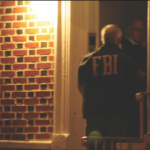How to Win Implied Consent Hearings in Michigan
If you are facing an implied consent hearing in Michigan and do not want to lose your driver’s license, you need expert legal representation who can fight for you and win!

Implied Consent Suspensions and Hearings
Implied-Consent hearings in Michigan involve a driver alleged to have committed the offense of intoxicated driving (OWI, DUI, Impaired Driving, OWPD, etc.) and refused to take a chemical test chosen by a police officer without a lawful excuse. The police officer must have reasonable grounds to believe that the driver committed the offense covered by the statute (MCL 257.625c(1)) and adequately advise the driver of their test rights. When there is a refusal to test, the officer enters the refusal into the Law Enforcement Information Network (LEIN), confiscates the person’s driver’s license, and issues a temporary paper license. If the Secretary of State finds you responsible for a first implied consent violation, your license will be suspended for one year.
Your best hope to keep your driver’s license is aggressive, effective, and experienced legal representation.
Timely Appeal of Alleged Refusal is Extremely Important
A driver has only 14 days to appeal the refusal to the Michigan Secretary of State on the form provided by the arresting police department. If the appeal is not timely, a license suspension is automatic. Failure to appeal in a timely manner is the most common mistake people make. After a drunk driving arrest, the officer will give you several forms, and it is unlikely they correctly explained the documents to you. Also, if you were scared, nervous, emotional, and possibly highly intoxicated at the time, it is unlikely you understood what the officer explained. Remember, filing the request for an appeal in a timely manner is very important. The DAAD will automatically reject a late appeal.
At the Implied Consent Hearing
The police officer has the burden of proof by a preponderance of the evidence that the refusal occurred and was unlawful. A reasonable ground to believe that a person is driving drunk can be determined by a person’s driving, appearance, and demeanor, along with field sobriety tests and a preliminary breath test. A defense lawyer can cross-examine the police officer, find weaknesses in their case, and attempt to establish a failure to follow the statutory requirements. If the police officer presents sufficient evidence to prove the driver unreasonably refused the breath test, the hearing officer will suspend the driver’s license for a year. On the other hand, the hearing officer will dismiss a petition to suspend the driver’s license if there is insufficient evidence. If the hearing officer dismisses the petition, there will not be a suspension.

Hardship Petitions in Circuit Court
If you lose an implied consent hearing or fail to make a timely request, a petition can be filed in Circuit Court requesting restricted driving privileges based upon hardship. The burden at circuit court is high, and most judges are very particular regarding the requirements to win these hearings. The benefit of having a highly experienced driver’s license restoration lawyer is that they will have handled numerous similar cases and know how to give the client the highest possible chances of winning.
Second Implied Consent Violation Within Seven (7) Years
If you face a second implied consent violation within seven (7) years, your license will be suspended for two (2) years, and six (6) points will be added to your driver’s license. A Hardship License is not available for a second or subsequent violation.
Implied Consent Hearing Testimonials
“After a minor accident where I hit my head, I was understandably shaken and refused to take a breath test. I was terrified I’d lose my license, but LEWIS & DICKSTEIN, P.L.L.C. stepped in and changed everything. They convinced the hearing officer that my refusal wasn’t unreasonable, given the circumstances. Thanks to their expertise, the officer’s request to suspend my license was denied. I’m so grateful for their support and skill during such a stressful time.”
— T.R.
“I was ready to accept the suspension of my license and move on, but my attorney at LEWIS & DICKSTEIN, P.L.L.C. urged me to fight it. I’m so glad I listened. At the hearing, the officer admitted that I asked for a lawyer, but he didn’t give me a reasonable chance to contact one. The hearing officer threw out the suspension thanks to the team’s persistence and knowledge. They truly made all the difference for me.”
— A.L.
“I hired George Brown at LEWIS & DICKSTEIN, P.L.L.C. after being wrongly accused of refusing a blood test. All I did was ask a few questions about the test and my rights, but the officer twisted my words to claim I refused. George did an incredible job at the hearing, cross-examining the officer and proving his actions were unreasonable. He showed that I was trying to make an informed choice, and the officer failed to provide basic answers. Thanks to George’s brilliant defense, my implied consent case was dismissed at the hearing, and my license was saved.”
— J.S.

Effective, Experienced Michigan Driver’s License Attorneys
The laws relative to driving privileges in Michigan are complicated. The driver requesting an appeal must comply with several deadlines and complex legal requirements. You must have legal representation with experience protecting and restoring driving privileges to get you back on the road legally. The attorneys with LEWIS & DICKSTEIN, P.L.L.C. are highly experienced and capable lawyers handling Michigan driver’s license restoration cases. Our attorneys also have decades of experience at implied consent hearings. If you face an implied consent hearing or loss of your driving privileges, you need the protection of the Michigan driver’s license restoration litigators with LEWIS & DICKSTEIN, P.L.L.C.
Call us today at (248) 263-6800 for a free consultation or complete an online Request for Assistance Form. We will contact you promptly and find a way to help you.













